
If your dinner plate is piled high with leafy greens, brightly colored fruit and vegetables, lean meat and whole grains, your brain will thank you. These foods contain vitamins important for nourishing your brain and keeping your nerves healthy. What you eat can help you beat mental fogginess, improve your cognitive capacity and help prevent age-related dementia.
Vitamin C and Neurotransmitters
Vitamin C is known as an immune-boosting nutrient that helps to ward off colds. Your brain contains a higher concentration of vitamin C than any other organ in your body, however. A study published in 2009 in "Free Radical Biology and Medicine" notes that the powerful antioxidant activities of vitamin C help to reduce inflammation in your brain. This may help to reduce your risk of cognitive disorders such as Parkinson's and Alzheimer's disease. Additionally, vitamin C is important for mental function because it is needed to balance chemical messengers called neurotransmitters. Aim to get the recommended daily dose for adults of 75 to 120 milligrams from foods such as oranges, green peppers, broccoli, tomatoes and kiwis.
Vitamin E Antioxidant Effects
A 2002 review published in the "Journal of Nutrition" concluded that the potent antioxidant effects of both vitamin E and vitamin C are important for brain performance. Vitamin E is also essential to maintain the outer membrane layer of nerves and other cells and helps to prevent their breakdown due to aging and the buildup of toxins. Vegetable oils, seeds, nuts and green leafy vegetables are the primary dietary sources of vitamin E. The recommended dose for adults is 15 to 19 milligrams per day.
Vitamin B-6 for Nerve Health
According to research published in 2003 in "Dementia and Geriatric Cognitive Disorders," vitamin B-6 may help to prevent or treat mild dementia in elderly patients by keeping the blood-brain barrier healthy. Like other B vitamins, B-6 helps your body convert food into glucose energy and produce red blood cells, which carry nutrients to your brain. This vitamin is also essential for nerve health. Good food sources of vitamin B-6 include poultry, fish, seafood, liver, milk, legumes, wheat germ and sunflower seeds. The daily recommended dose is 1.3 to 2 milligrams.
Vitamin B-12 and Red Blood Cells
Vitamin B-12 works with vitamin B-6 to keep your brain nourished with blood. Additionally, this nutrient is vital for the production red blood cells and DNA, your genetic material. Vitamin B-12 helps optimize your mental alertness by keeping your nerves healthy and preventing a type of anemia that can cause fatigue and weakness. The National Institutes of Health recommends a daily dose of 2.4 to 2.8 micrograms per day. You can get adequate vitamin B-12 from animal sources such as lean meat, poultry, eggs and dairy and from fortified cereals.
Related Articles
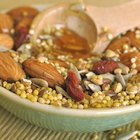
Liver Cleansing Diet of Almonds, ...

Natural Remedies and Vitamins for ...

The Best Vitamins for Sinuses

How to Reduce Acne Inflammation

Foods to Prevent Jaundice

L-Lysine for Hair Growth

Can Age Spots Be Reversed?
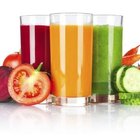
Nutrition Drinks for Diabetics
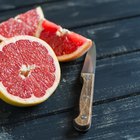
What Are the Benefits of Grapefruit for ...
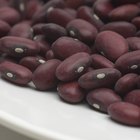
Red Kidney Beans Nutrition
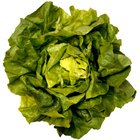
Nutritional Benefits of Butter Leaf ...
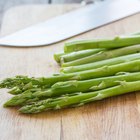
Top Vegetables With Selenium
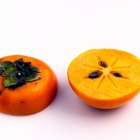
What Are the Benefits of Persimmons?

What Are the Health Benefits of ...

Essential Enzymes for Hair Growth
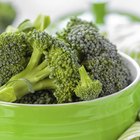
Foods Rich in Magnesium & Phosphorus

Does Milk Thistle Help Skin?
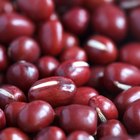
Nutrition Information for Adzuki Beans

Zinc Treatment for Rosacea
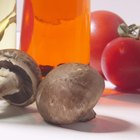
Mineral Oil Vs. Olive Oil
References
- Journal of Nutrition: Effects of Fruits and Vegetables on Levels of Vitamins E and C in the Brain and Their Association With Cognitive Performance
- Free Radical Biology and Medicine: Vitamin C Function in the Brain: Vital Role of the Ascorbate Transporter
- University of Maryland Medical Center: Vitamin C (Ascorbic Acid)
- University of Maryland Medical Center: Vitamin E
- Dementia and Geriatric Cognitive Disorders: Vitamin B12-B6-Folate Treatment Improves Blood-Brain Barrier Function in Patients With Hyperhomocysteinaemia and Mild Cognitive Impairment
- University of Maryland Medical Center: Vitamin B-6
- National Institutes of Health: Vitamin B-12
Writer Bio
Nadia Haris is a registered radiation therapist who has been writing about nutrition for more than six years. She is completing her Master of Science in nutrition with a focus on the dietary needs of oncology patients.
Photo Credits
EpicStockMedia/iStock/Getty Images